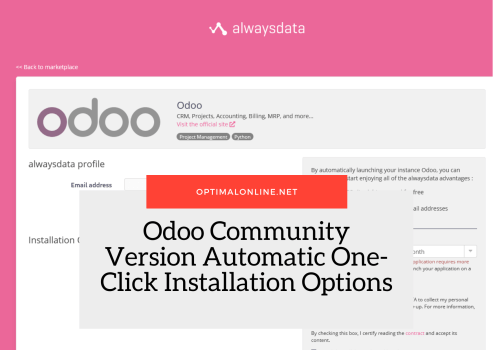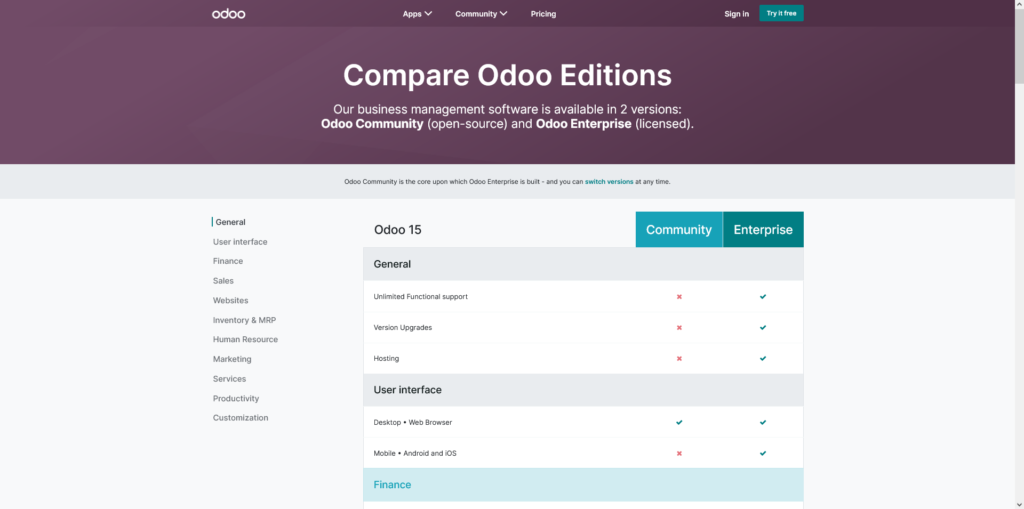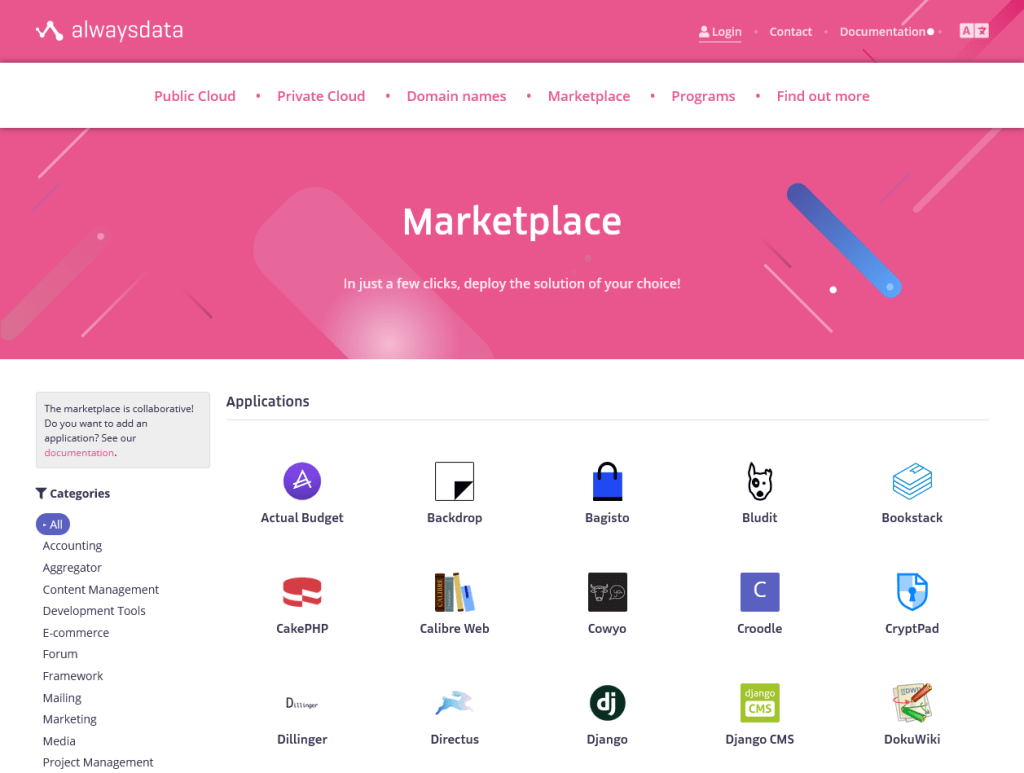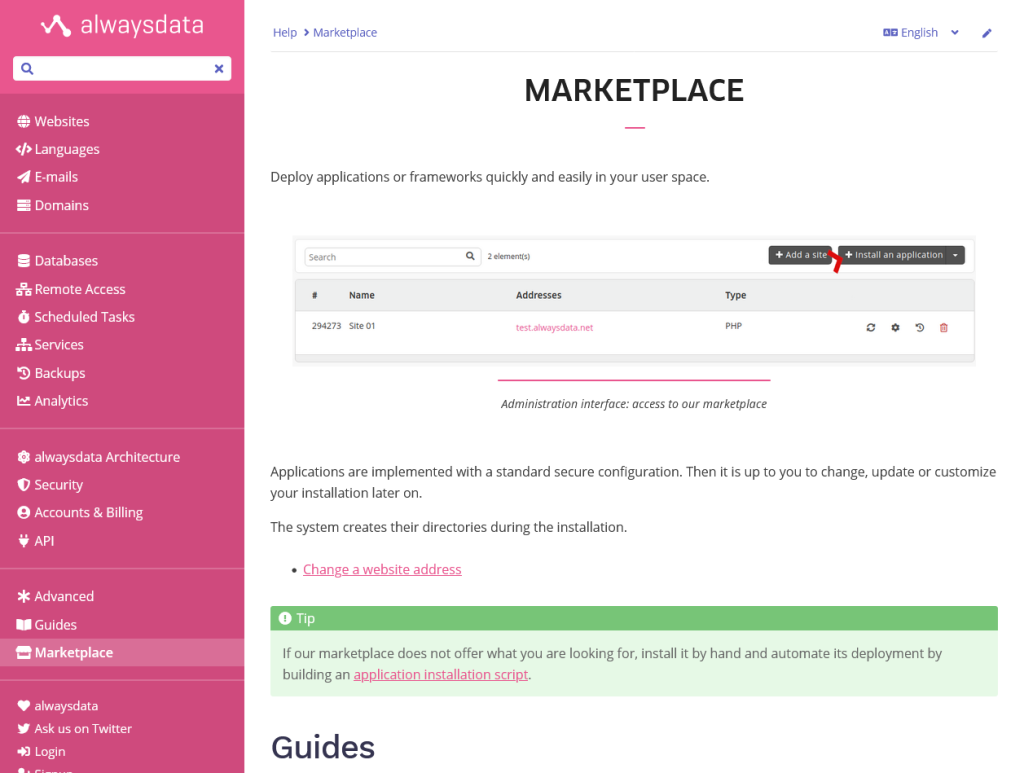If you’re looking for a comprehensive ERP system, Odoo is an excellent option. It offers hundreds of business apps and has a global following. However, there are two different types of Odoo: the community edition and the enterprise edition. The community edition offers limited customer support and requires more work to set up initially. The enterprise edition is a “plug and play” solution that comes with more features and customer support. Which type of Odoo is right for you?
Comparing the Odoo Editions
On https://www.odoo.com/page/editions you can compare the two editions in more detail. The Odoo Community is the heart of Odoo Enterprise and you may move between versions at any time. The community edition is free and open source, while the enterprise edition has a monthly fee.
While Odoo is available in a community edition, it is important to note that it is not a “plug and play” solution. Its initial implementation will involve a steep learning curve and can be expensive if all of its functionality is being used. If you are looking to use Odoo in a multi-user or multi-company environment, you should definitely consider using the enterprise version.
Odoo Pricing
If you’re planning to install Odoo and visit the Odoo pricing page you will notice that Odoo charges the same price for the Cloud and On Premise offers, which might seem strange at first. But the most overlooked aspect might be that the actual expenses of maintaining an Odoo installation are not the hosting fees, but the human costs associated with maintenance services such as support, upgrades, and deployment.
Although there are extra service fees for hosting Cloud customers, they don’t have email setup difficulties, are always on the most up-to-date versions, don’t have upgrade issues, and so on. As a result of this apparent paradox, a Cloud client costs Odoo less to maintain than an On Premise customer. Because Cloud customers typically have a better experience (it works in a few clicks with a well-tuned infrastructure), Odoo decided to offer the hosting for free.
General pricing for Odoo is based on the number of users and the apps you want to use. You can use Odoo on a single company or in multiple companies. Depending on the number of users and apps you want to use, you can choose from a number of different plans.
You can also decide to purchase an implementation success pack to receive a dedicated consultant to help you implement Odoo on your premise. These packs will include a personal Odoo developer who will work with you on the project. The support developer is an important aspect of the pricing for Odoo, and the success of the project is often dependent on it. The Success Pack starts at $3,600, and new users receive 15% off the price.
Odoo Community Version Automatic One-Click Installation Options
While there is a 15 day free trial version of Odoo with Standard Cloud Hosting, some users still want to install the free community version on their own servers. Some also still remember that it was comparatively easy when Odoo still was called Tiny ERP (February 2005 to December 2006) or OpenERP (April 2009 to 2014) in earlier versions.
So, how can you install the free Odoo community version on your own server? Of course what most people are looking for is an automatic one-click installation option similar to what Installatron or Softaculous Auto Installer for cPanel are offering.
Due to the complexity of Odoo this is not possible. If you are still looking for an automatic one-click installation option you will not be able to use your own shared hosting or VPS hosting but you can choose between Google Cloud Platform, Amazon AWS or Microsoft Azure thanks to Odoo packaged by Bitnami. Bitnami allows you to quickly deploy applications like Odoo to the cloud and make them available online. As usual with cloud hosting you only pay for the resources you use.
Introducing a simpler and more user-friendly alternative to installing Odoo
Are you looking for an easier and more user-friendly way to install Odoo? Then you might want to check out the Alwaysdata marketplace, which provides a simple and hassle-free way to install and configure Odoo with just a few clicks. In the following paragraphs, we’ll explore how the Alwaysdata marketplace works and why it’s a great alternative to installing Odoo on Ubuntu 20.04 and deploying it on DigitalOcean or Vultr.
What is the Alwaysdata marketplace?
Alwaysdata is a web hosting provider that offers a marketplace for users to quickly and easily deploy various applications and frameworks, including Odoo. The marketplace simplifies the installation process and configures the application with a standard secure setup, allowing users to customize and update the installation later as needed.
Why is the Alwaysdata marketplace great alternative to Installing Odoo on Ubuntu 20.04 and Deploying it on DigitalOcean or Vultr?
Installing Odoo on Ubuntu 20.04 and deploying it on DigitalOcean or Vultr requires more technical expertise and knowledge than using the Alwaysdata marketplace. The process involves setting up a server environment, installing and configuring various software packages and dependencies, and managing server security and updates, which can be time-consuming and challenging for non-technical users.
In contrast, the Alwaysdata marketplace simplifies the installation process and allows users to install and configure Odoo with just a few clicks. The marketplace takes care of the installation process, including the setup and configuration of the necessary software packages and dependencies, leaving users with a fully functional Odoo instance that they can customize and manage.
How to install Odoo using the Alwaysdata marketplace?
To install Odoo using the Alwaysdata marketplace, follow these simple steps:
- Log in to your Alwaysdata account and go to the marketplace.
- Search for “Odoo” and click on the Odoo logo or title.
- Select the installation options for your Odoo instance, such as the account name, the Odoo directory, and the HTTP address.
- Click on the “Launch Installation” button to start the installation process. Alwaysdata will now install and configure Odoo for you automatically.
- Once the installation process is complete, you should be able to access your Odoo instance via the HTTP address you specified during the installation process.
- To configure your Odoo instance further, log in to the Odoo admin panel, which should have been provided to you during the installation process. From here, you can customize your Odoo installation, install additional modules or plugins, and manage your data.
According to the Alwaysdata helpcenter the installation data will look as follows (replace “foo” with your own account name):
- Account name:
foo - Odoo directory:
$HOME/odoo/ - Odoo HTTP address:
foo.alwaysdata.net - Live Chat port: 8300 (ports between 8300 and 8499 can be used)
They can be adjusted depending on your needs.
Conclusion
If you’re looking for a simple and hassle-free way to install Odoo, the Alwaysdata marketplace is an excellent alternative to installing Odoo on Ubuntu 20.04 and deploying it on DigitalOcean or Vultr. The marketplace simplifies the installation process and allows you to install and configure Odoo with just a few clicks. With its intuitive web interface and robust hosting features, Alwaysdata makes it easy to manage your Odoo instance and your hosting environment. Try it out today and experience the benefits of using Odoo for your business.
FAQs:
- What are the system requirements for installing Odoo?
The Odoo system requirements vary depending on the version and the number of users. For small businesses with 5 employees, a server with 2 CPU and 2 RAM should be sufficient to run Odoo. - Can I install Odoo on my own server?
Yes, you can install Odoo on your own server. However, this requires technical knowledge and experience, as well as the ability to manage and maintain the server environment. - Is it possible to install Odoo on a cloud-based server?
Yes, you can install Odoo on a cloud-based server. Many cloud providers, such as Amazon Web Services, Microsoft Azure, and Google Cloud Platform, offer pre-configured instances for Odoo. - What is the difference between the community and enterprise versions of Odoo?
The community version of Odoo is free and open-source, while the enterprise version is a paid version that includes additional features and support. - How do I choose between the community and enterprise versions of Odoo?
The choice between the community and enterprise versions of Odoo depends on your needs and budget. If you have a small business and don’t need advanced features or support, the community version may be sufficient. If you have a larger business with complex needs and require support, the enterprise version may be the better choice. - Can I install Odoo using a one-click installer?
Yes, we have found a one-click installer on the Alwaysdata marketplace that offers automatic installation and deployment of Odoo, making the installation process much simpler and faster. - What is the best way to install Odoo?
The best way to install Odoo depends on your technical skills and resources. If you have technical knowledge and experience, you can install Odoo on your own server or a cloud-based server. If you don’t have technical skills, using a one-click installer or a pre-configured instance may be the best option.










